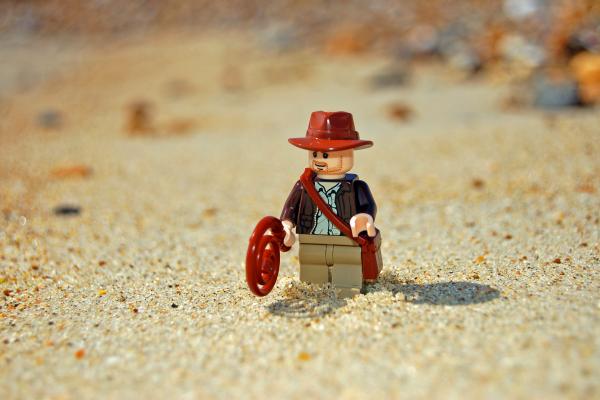I GREW UP with Raiders of the Lost Ark—wildly entertaining, dancing brilliantly with movie craft, speeding up and slowing down in perfect measure, delicious humor and giant thrills aplenty.
But like us all, the filmmakers were subject to the prejudices, pressures, and knowledge of their time. So Raiders stereotypes the “Arab street,” and its casual approach to violence, while typical of action cinema, is ugly. The joy of the ride makes it easy to ignore that Raiders is about a Westerner using Africans to get a Middle Eastern sacred object into an American museum. It may be taking things more seriously than they deserve to even mention this, when the goal was merely a hugely enjoyable Saturday morning serial throwback. The problem with Raiders may be only visible in retrospect—it’s certainly not a bad film; just a popular one with gaps.
Those same filmmakers went on to produce works such as Munich and A.I. Artificial Intelligence, The Big Chill, and Quills, each of which approaches frailty and hope in a humane way. If Raiders were made today, who knows what might be different?
It came to mind while watching The Lost City of Z, another story about an adventurer seeking exotic treasure. One of the year’s best films, it’s based on fact—the early 20th century British explorer Percy Fawcett’s search for a sophisticated settlement in Amazonia. Like Raiders, it looks magnificent and has its share of excitement and memorable characters. It also explores the inner life of its protagonist and makes some effort to acknowledge the brutality meted out on Indigenous people by outsiders.
In previous work, writer-director James Gray has portrayed outsiders immersed in a world into which they do not fit, but to which they may bring gifts. Thus far his masterpiece is The Immigrant, which takes color and drama familiar from The Godfather to foreground a feminist tale about overcoming violence without revenge. Gray clearly adores classical, big canvas cinema—and he’s also working in a time that encourages investigation of inner complexity and our impact on the lives of others.
He’s not the only one—lots of movies and TV shows are thinking about motivation and consequences with a bit more complexity, looking inward, inviting empathy, taking steps toward amends. Gone with the Wind has given way to Twelve Years a Slave; the anti-communist “Red scare” propaganda of 1950s movies has been replaced by the moral shades of grey in The Americans. Questioning the assumption that we all tell stories from the most truthful or liberating perspective is a welcome development. I wonder what future wisdom will grow out of the current moment.

Got something to say about what you're reading? We value your feedback!

